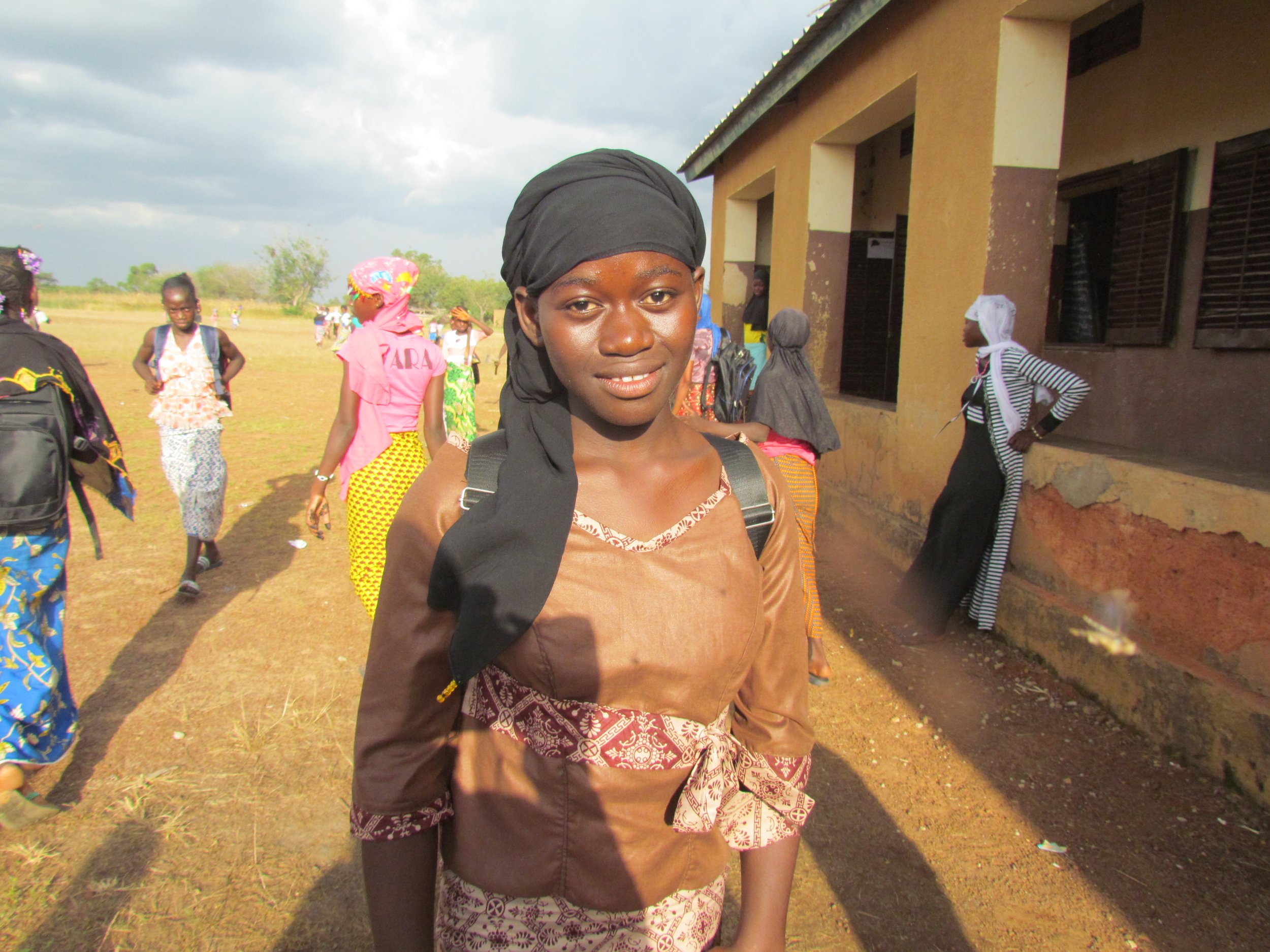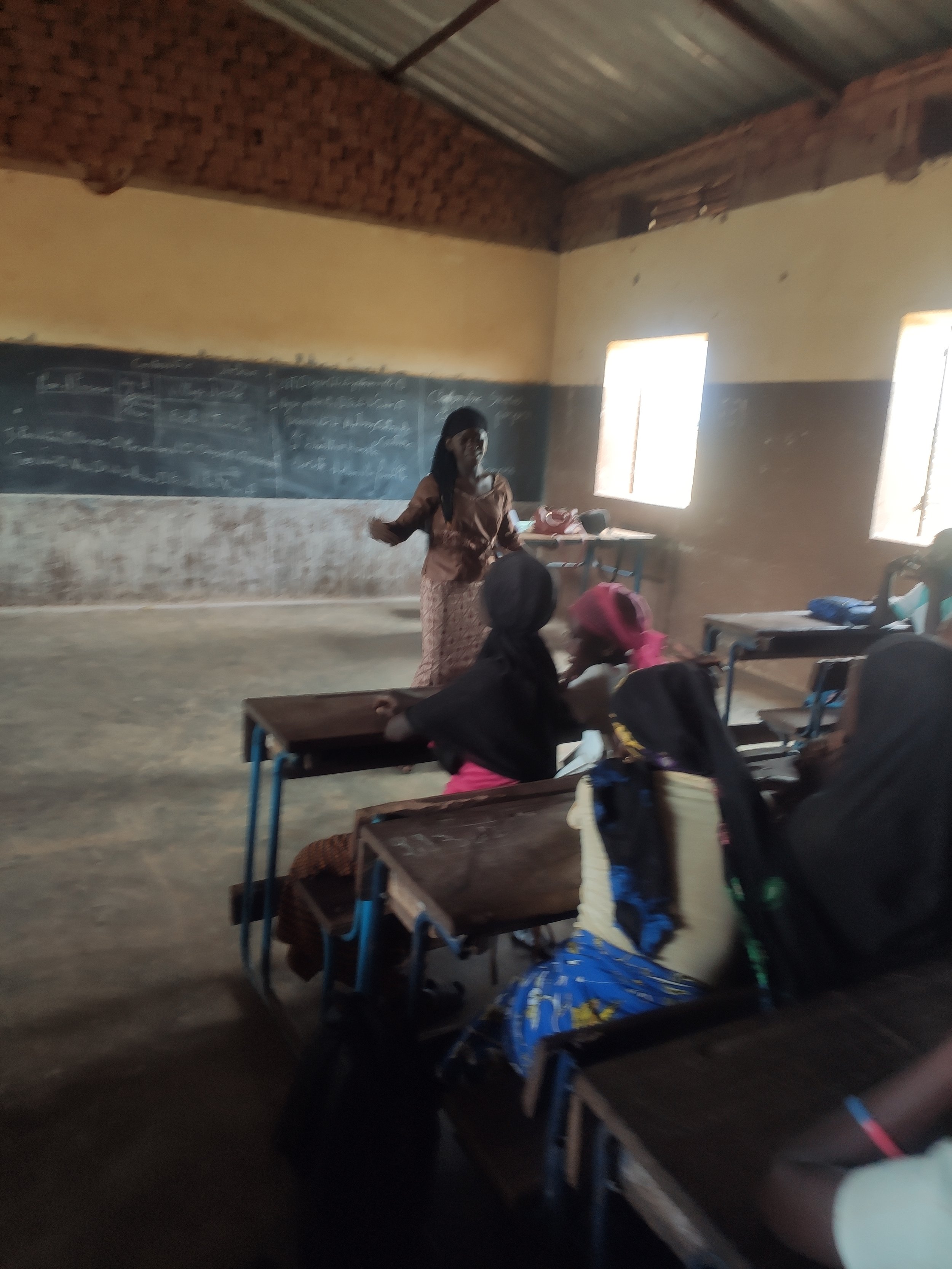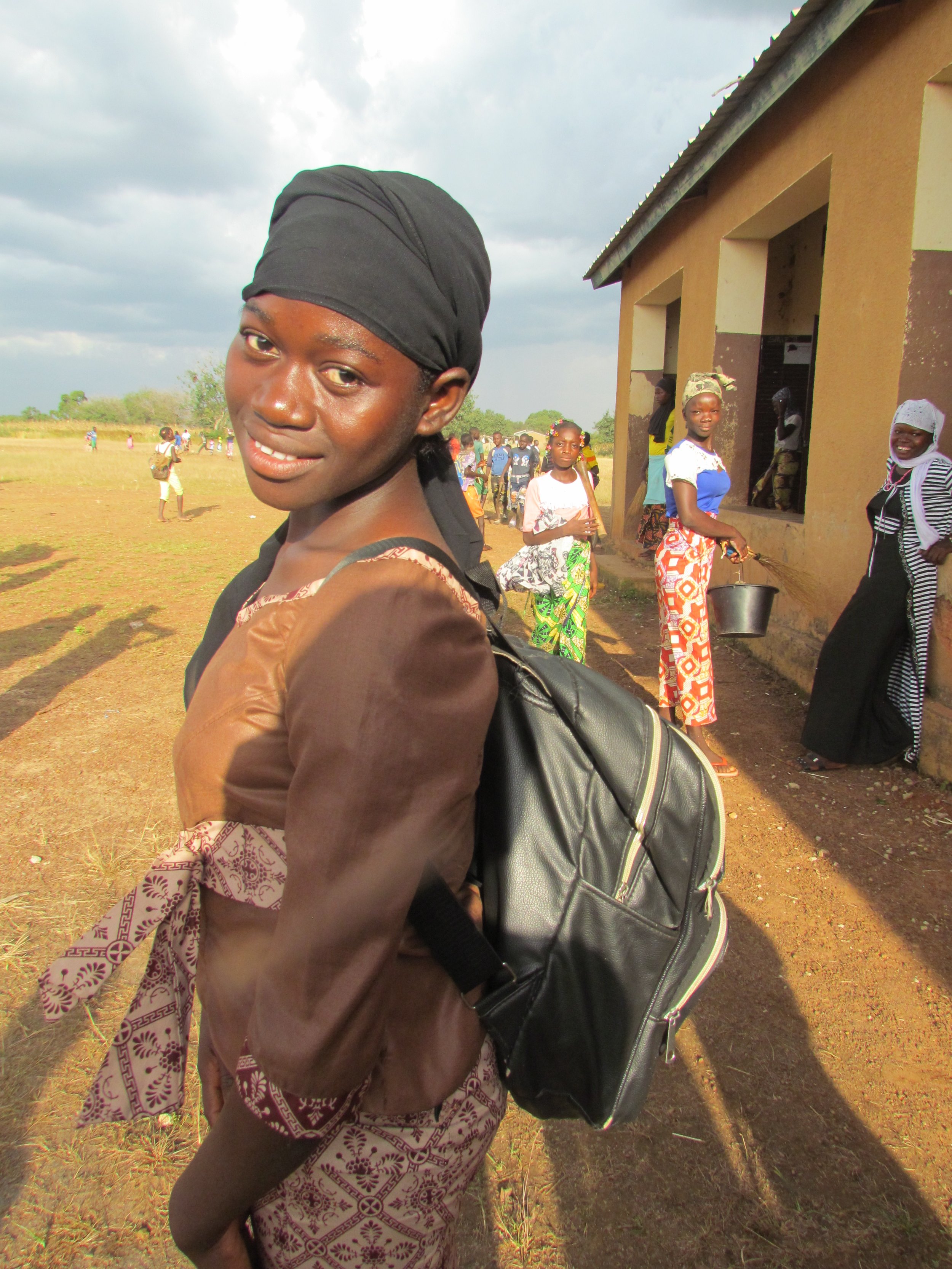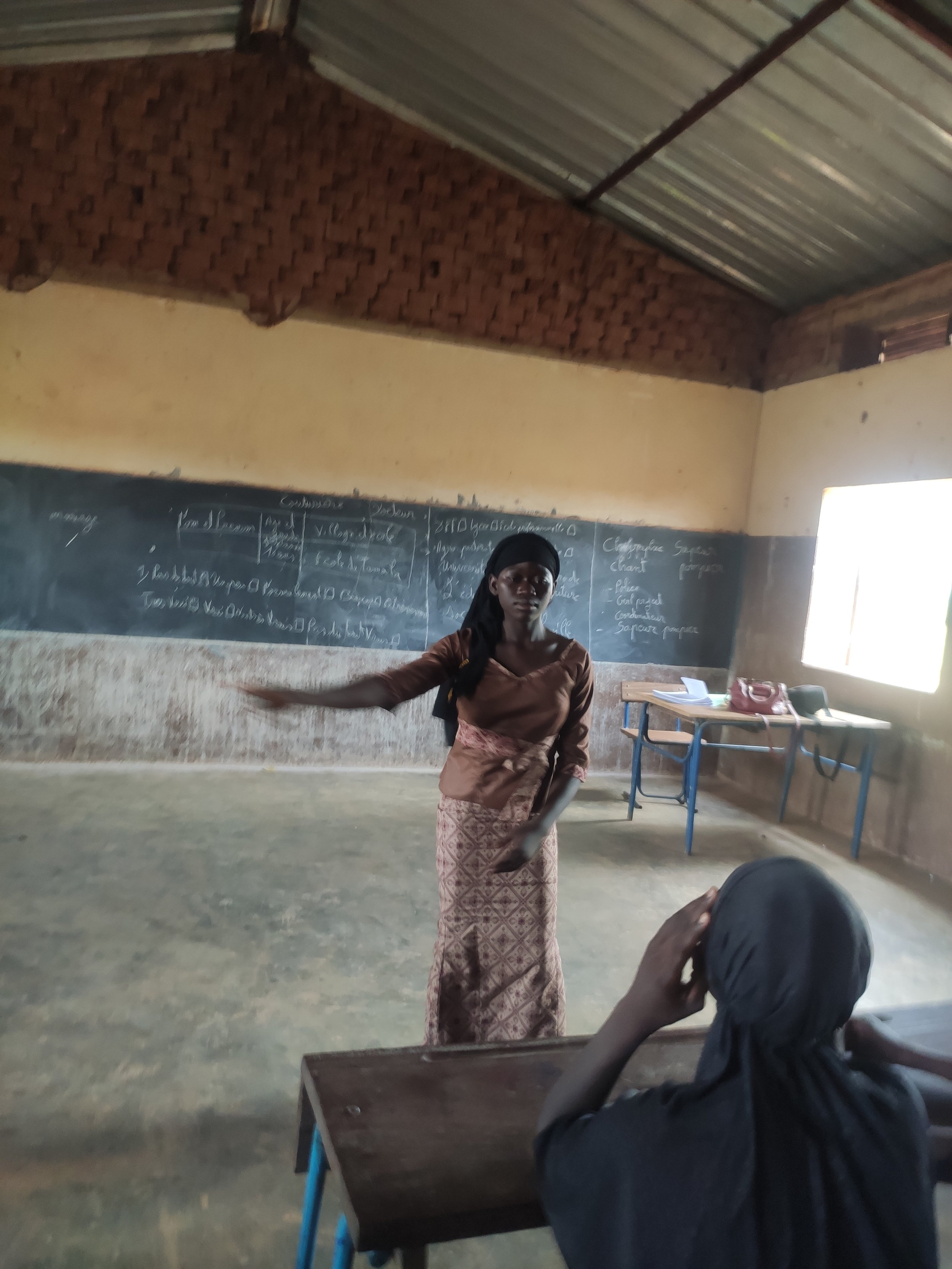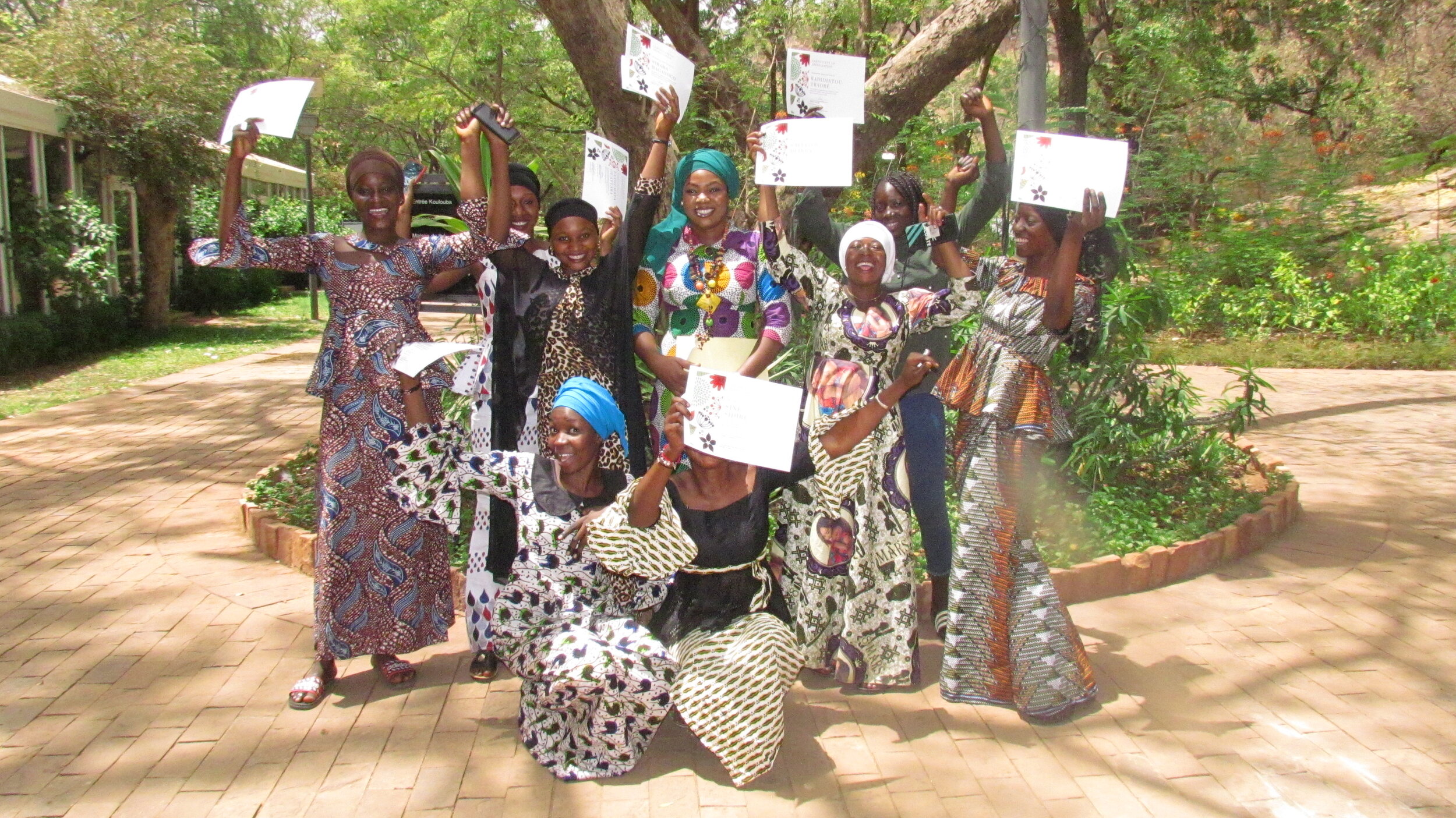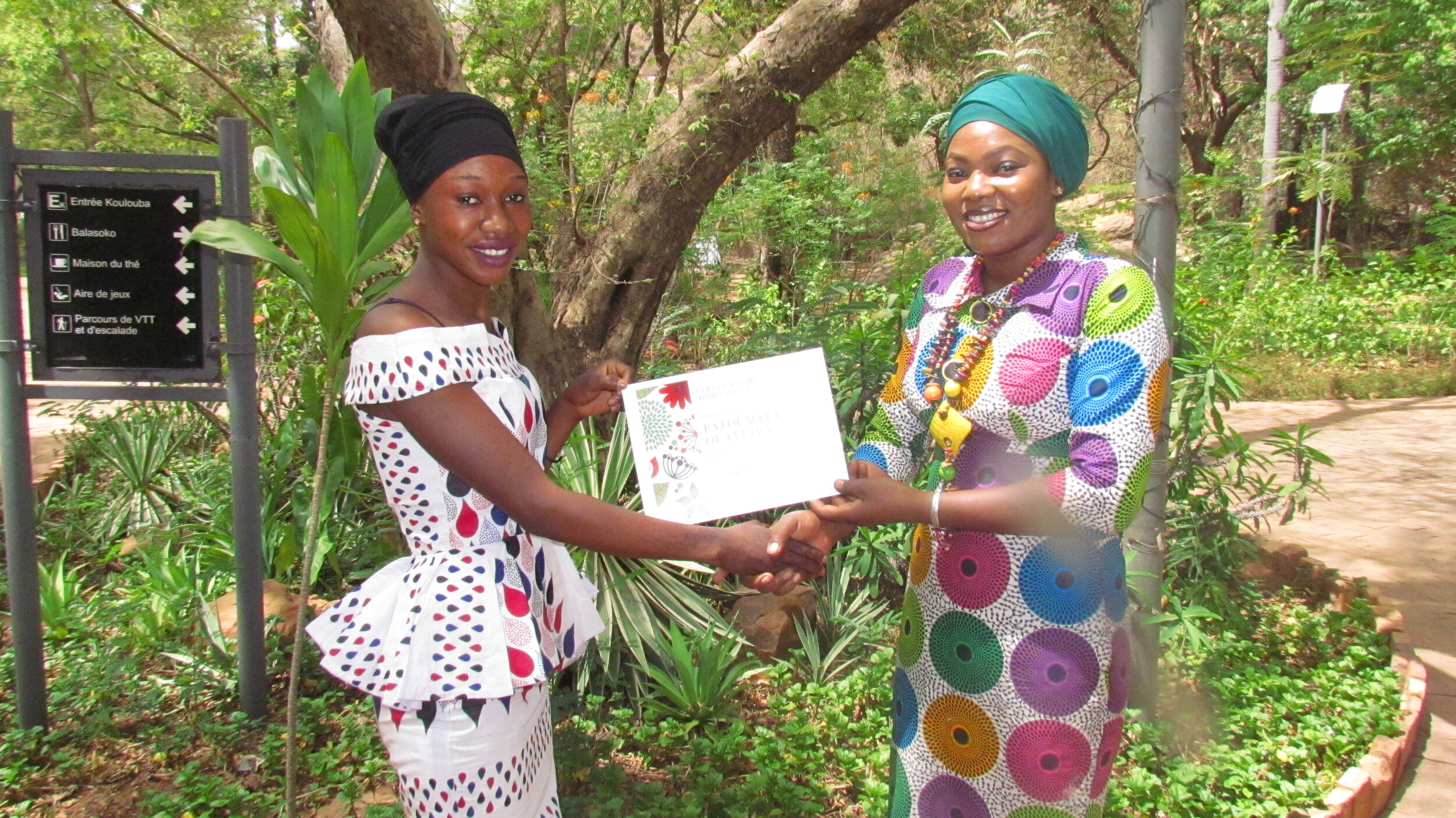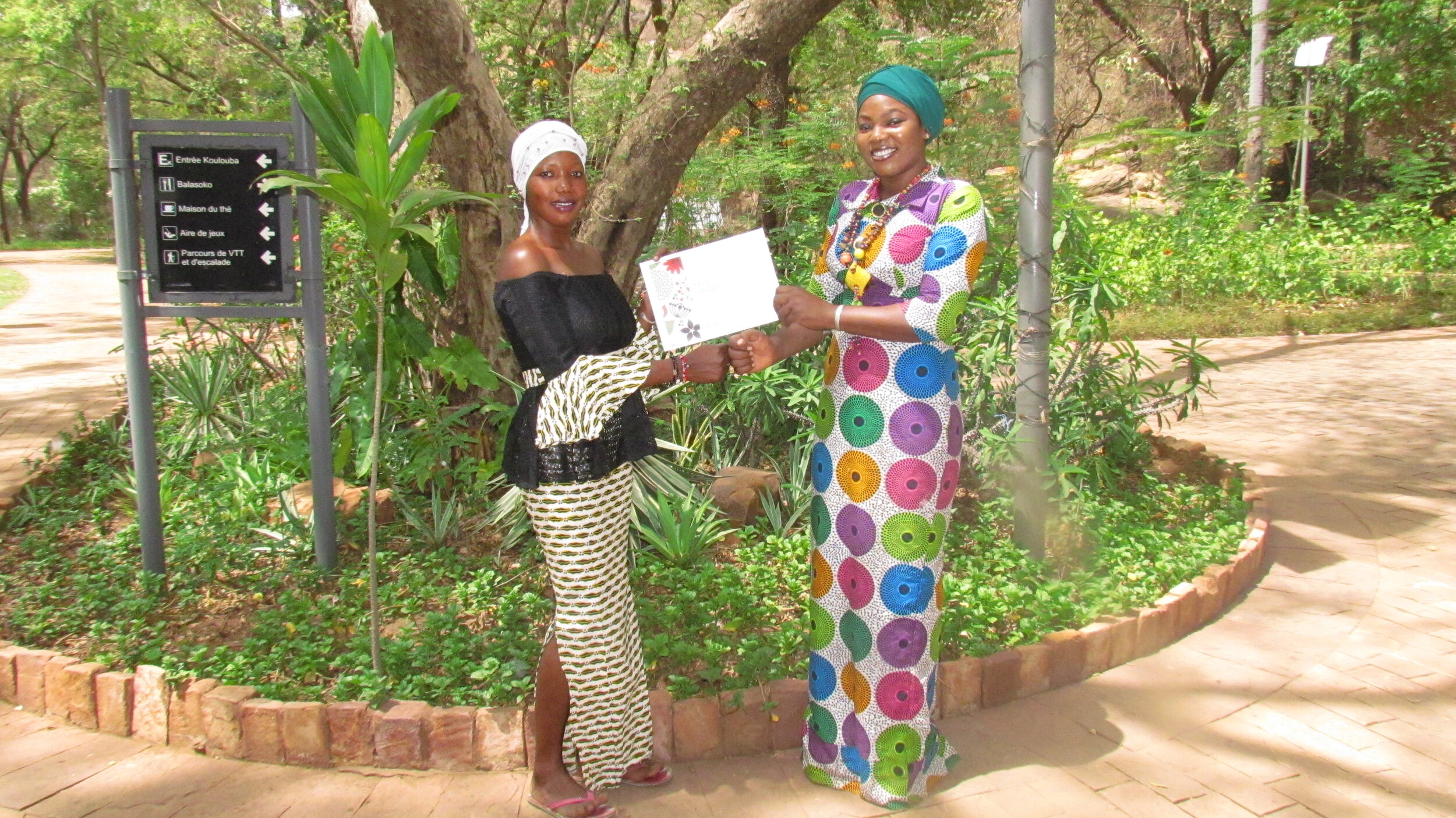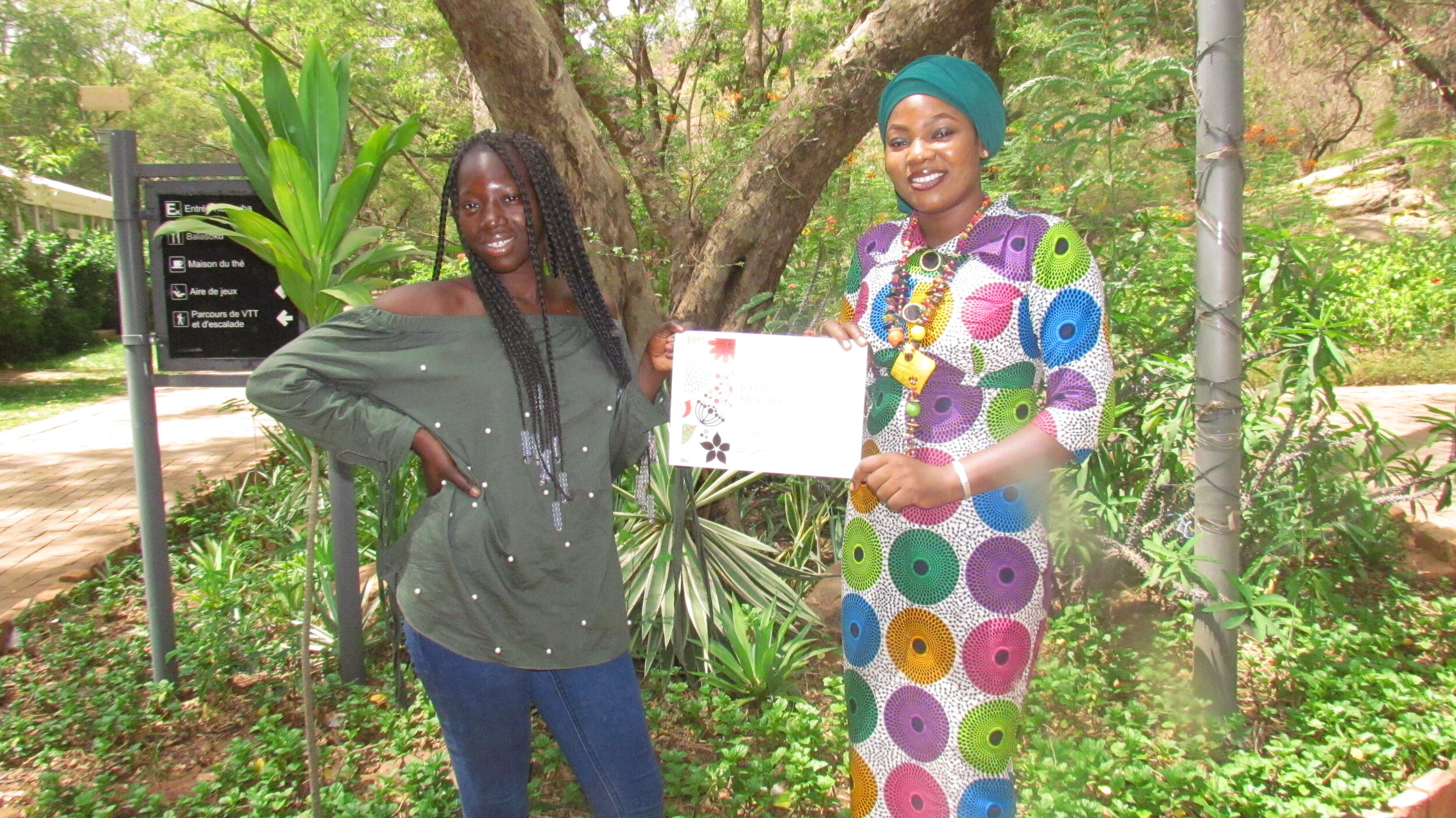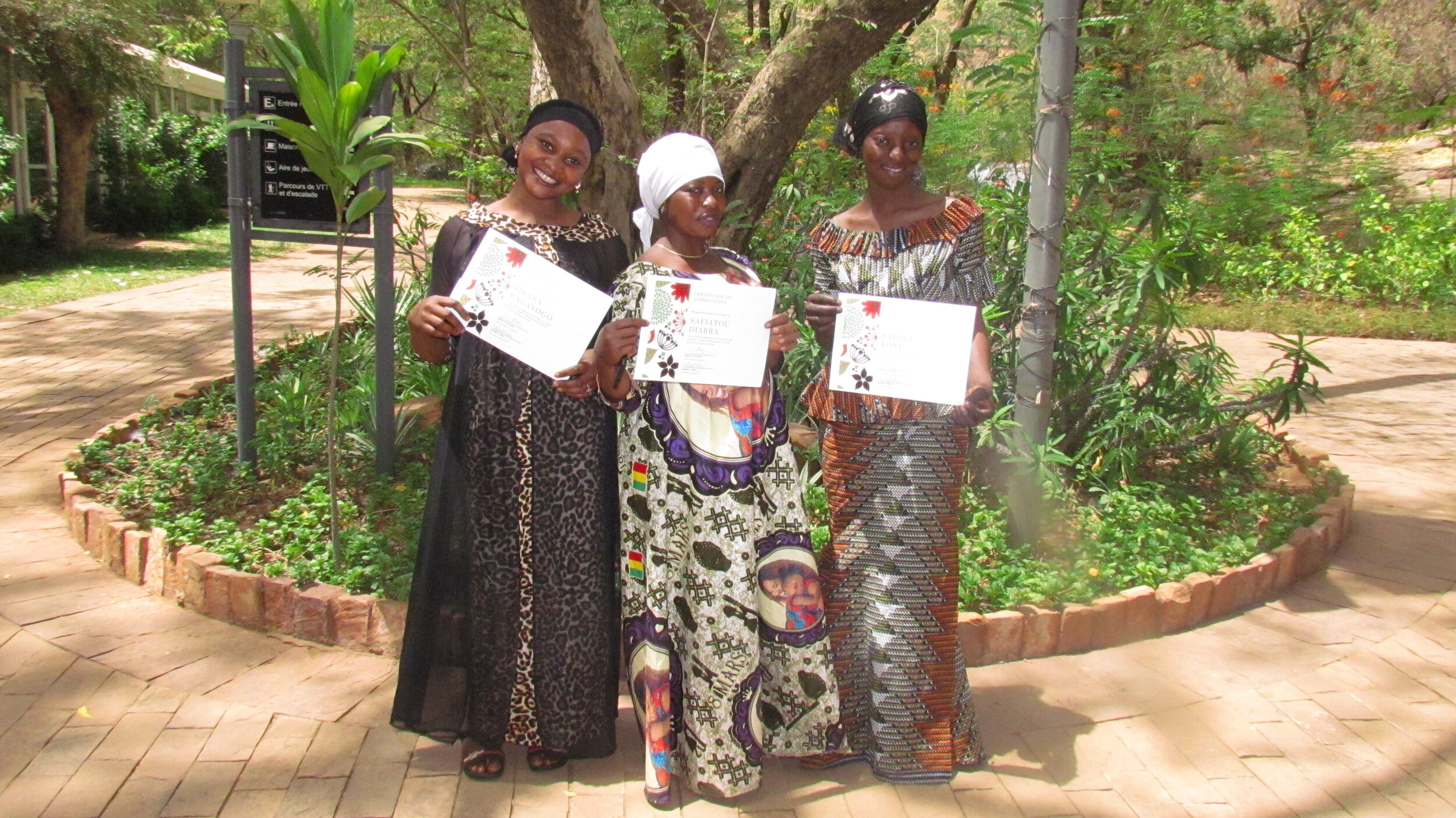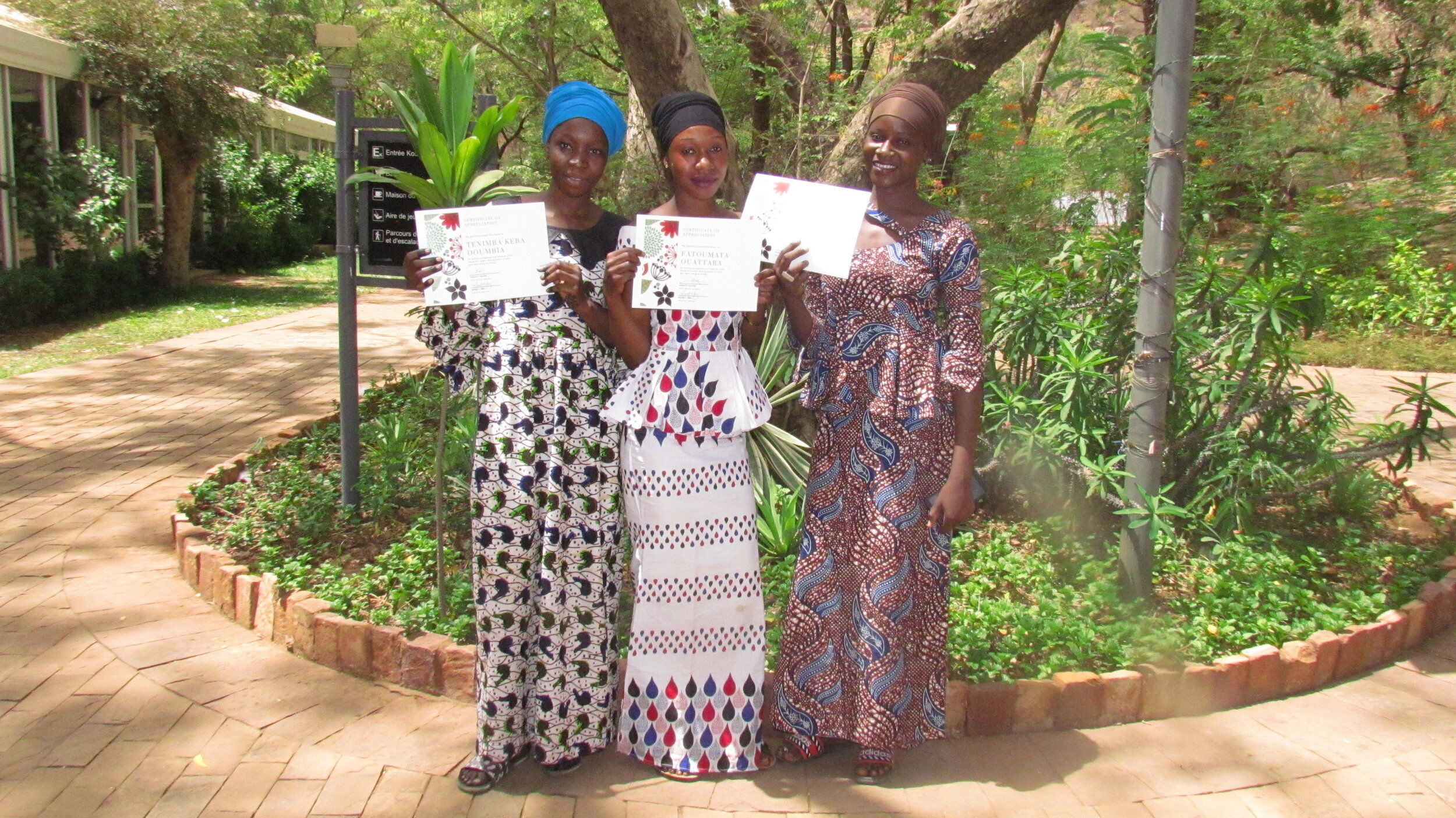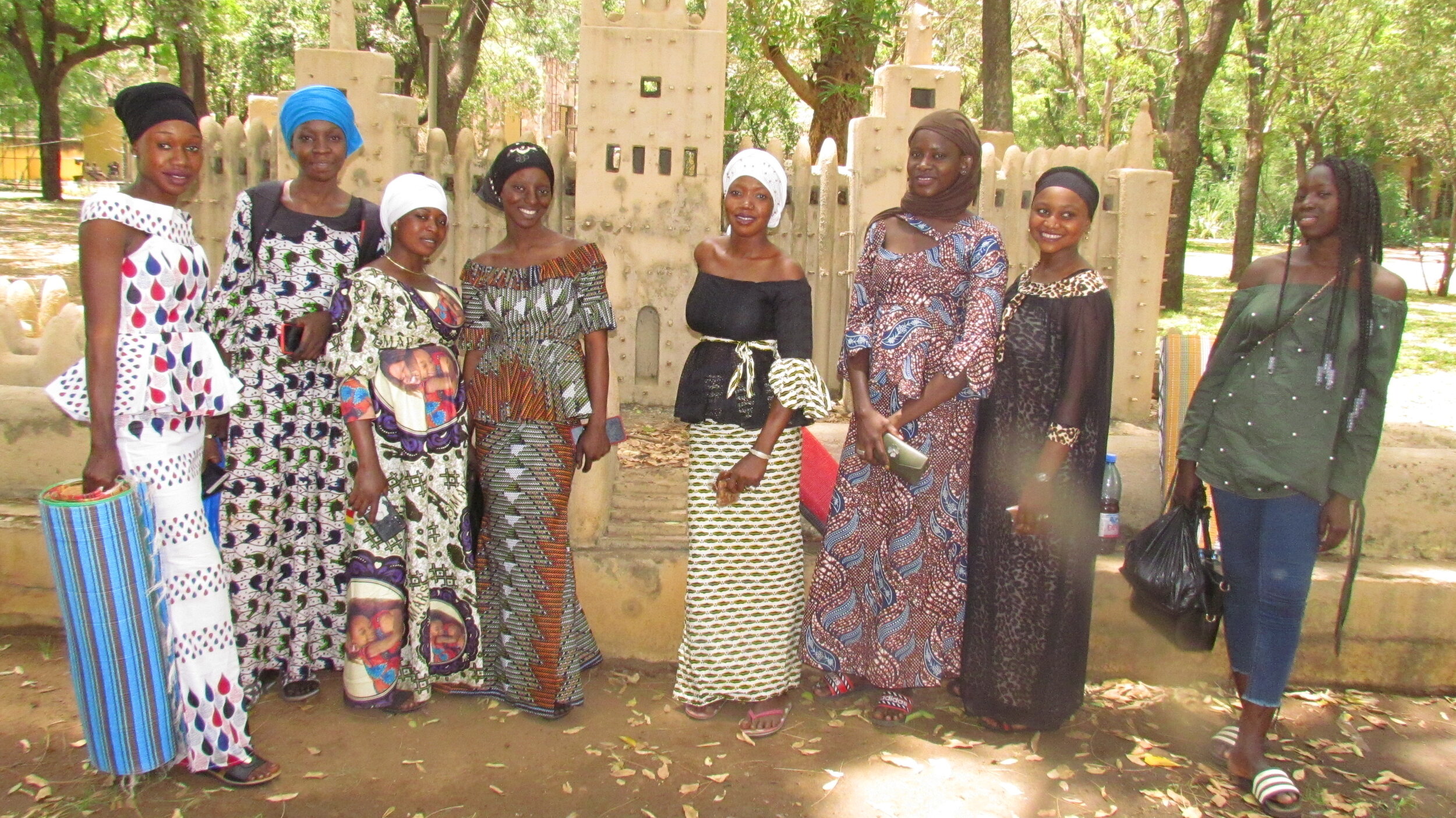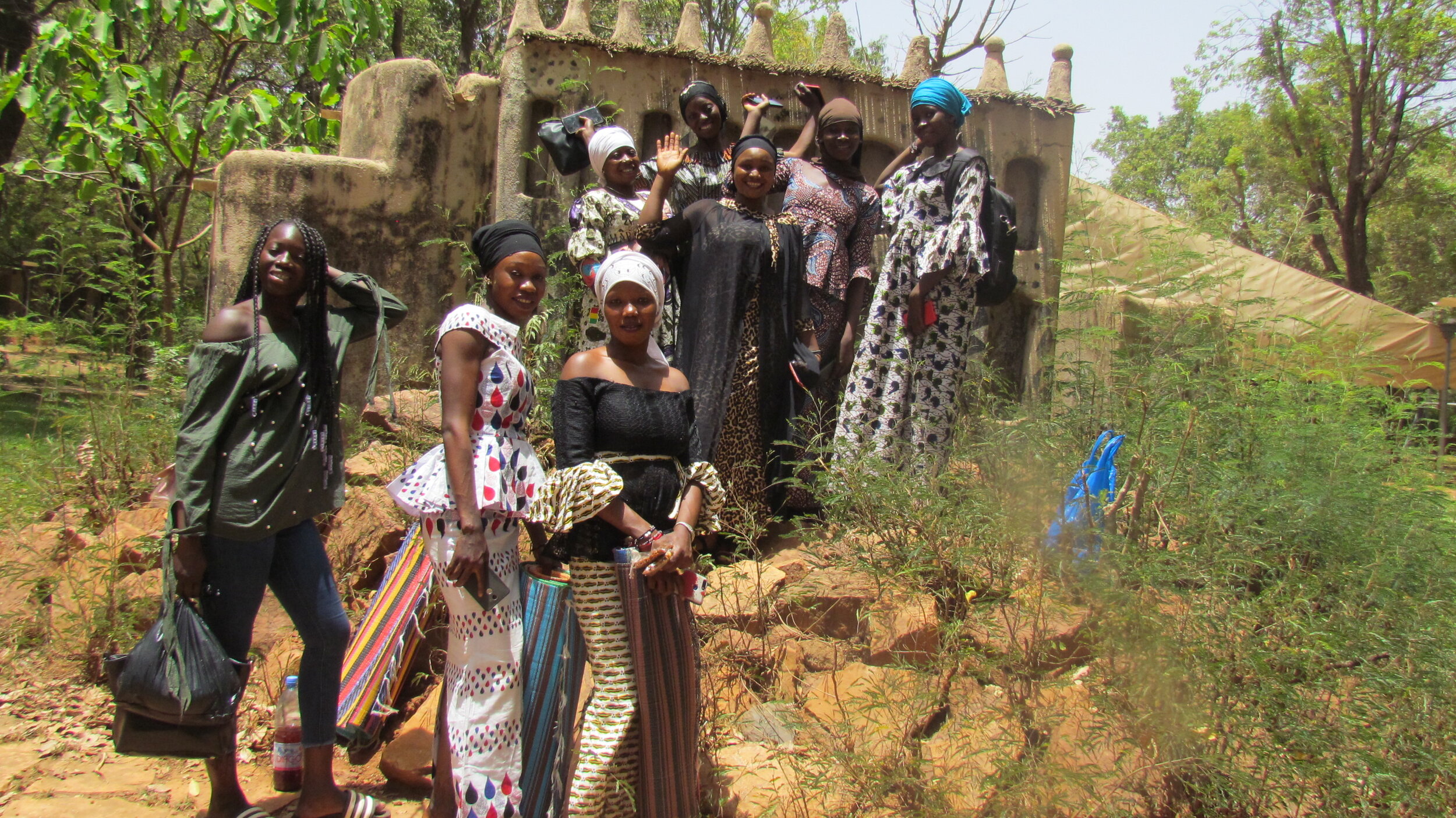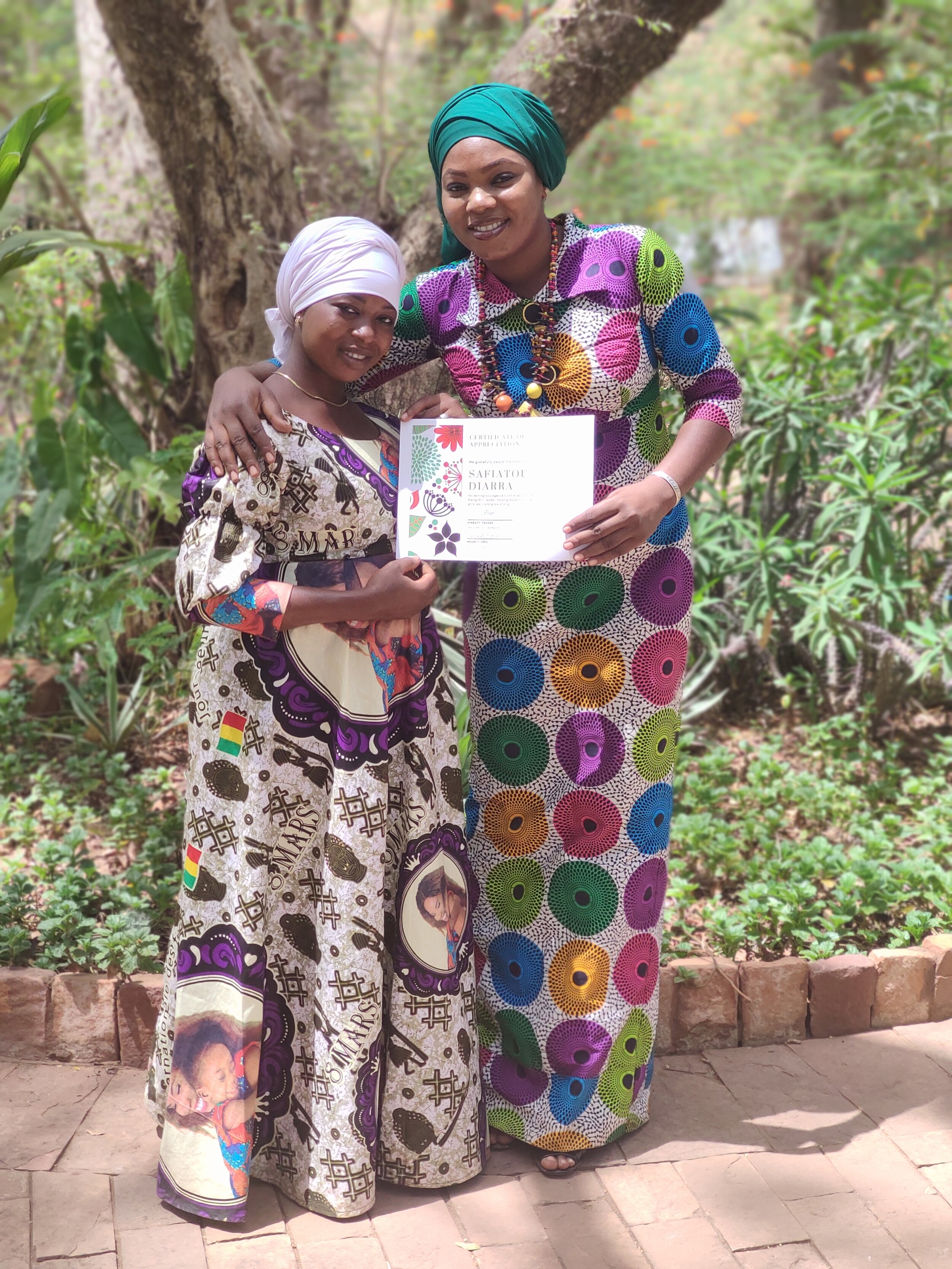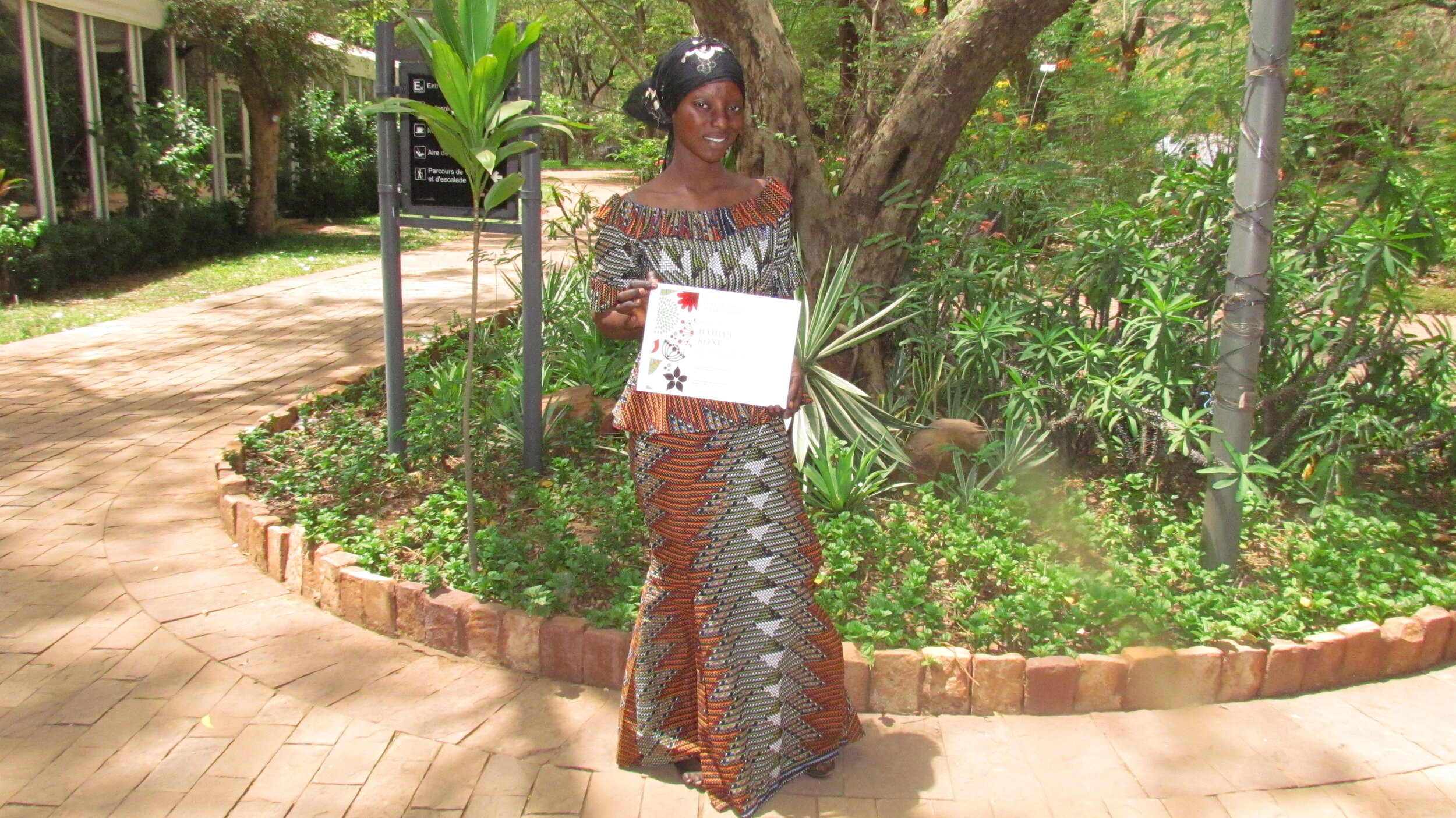A group of girl graduates from our Denik Middle School recently returned to their home village to inspire girls currently attending the school to study hard, all under the guise of a friendly soccer match. Meet two of the inspiring graduates who attended and inspired our Girls’ Project participants to study hard and dream big.
Educating Boys About Educating Girls
By Merritt Frey, Executive Director
Because female students in Mali face special barriers, we have a robust Girls’ Project to help support their special needs. But research shows improving girls’ access to education takes action from the whole community…not just the girls. So, part of our Girls’ Project work focuses on engaging boys from our partner schools in discussion about gender issues and how they can actively support their fellow students who happen to be girls.
This work focuses largely on peer meetings where boys gather for facilitated discussions about human rights, girls’ education, and their role in knocking down obstacles for girls. The meetings are lively, with boys actively debating big ideas and sharing their ideas for building a more equal world.
In November, we hosted these discussions in three of our partner villages — Diorila, Sebela, and Zambougou. In each case, 40 to 60 boys came out to learn and share their own thoughts. Adama Kone, the Mali Rising staff person who leads these discussions, noted how much fun was had…and it wasn’t only because cake was provided!
“These young men can be allies for girls in their classroom today, and in the future they can speak up for women in their families and in Mali as a whole. In Mali, change starts with discussion and debate among the community, and these boys really engaged,” said Adama.
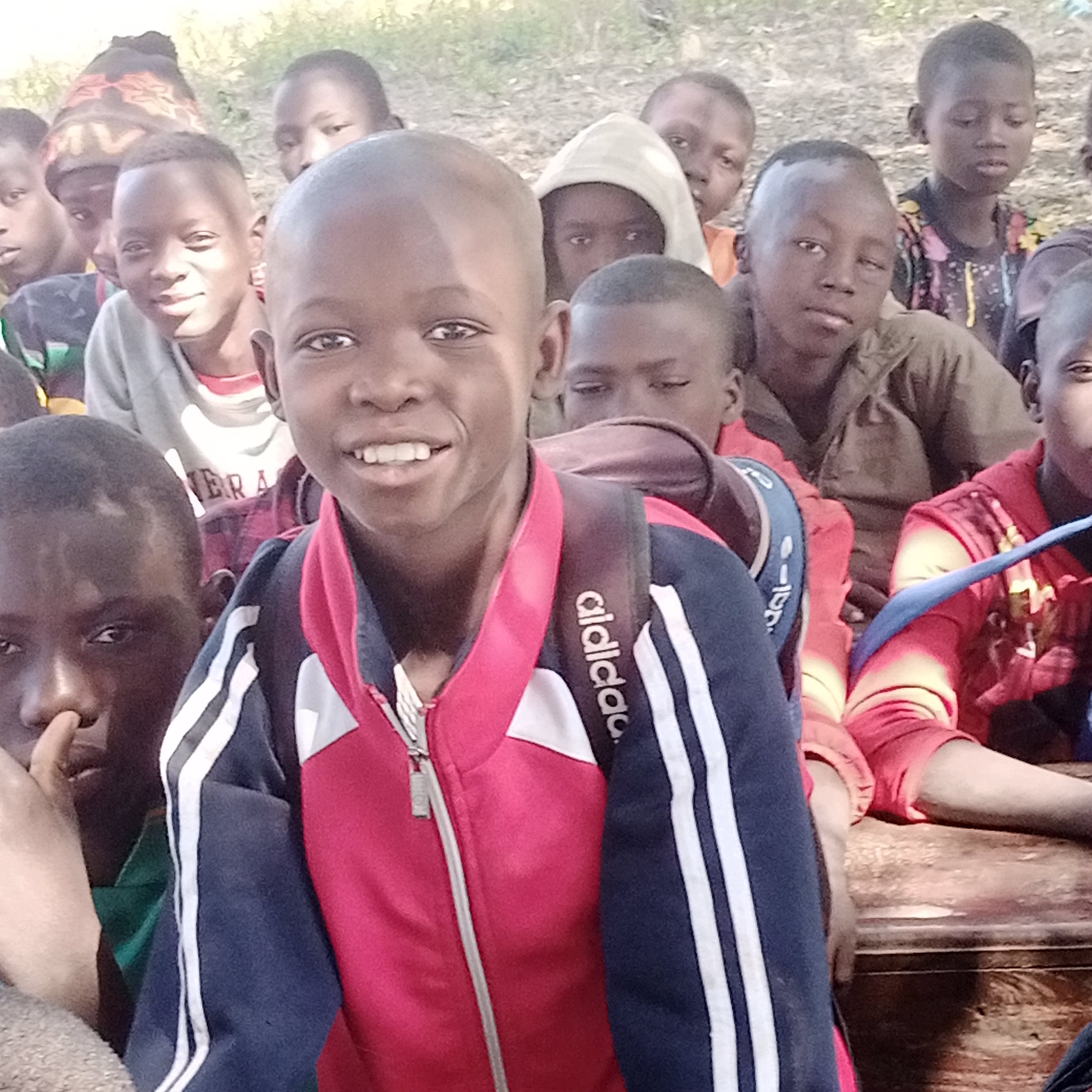
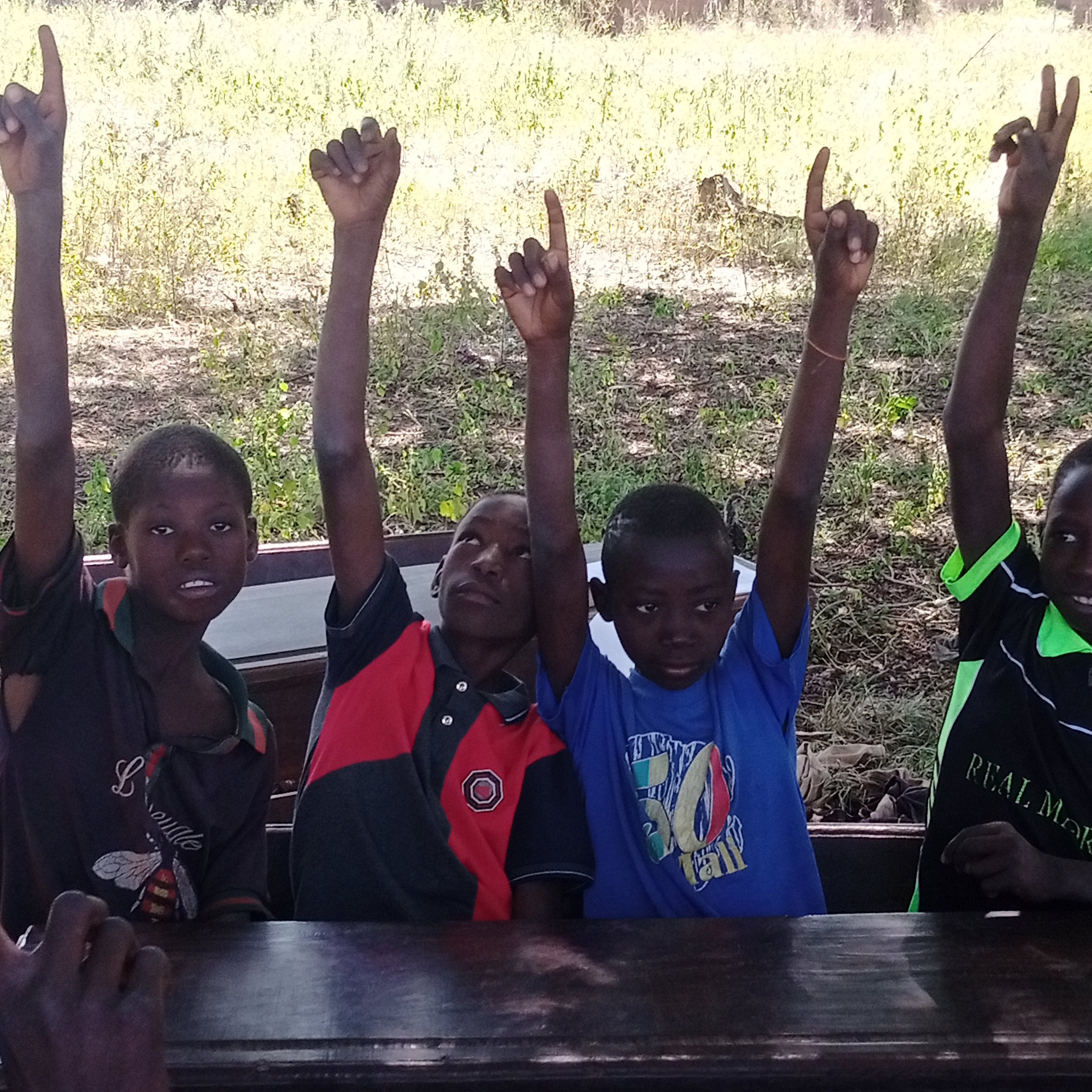
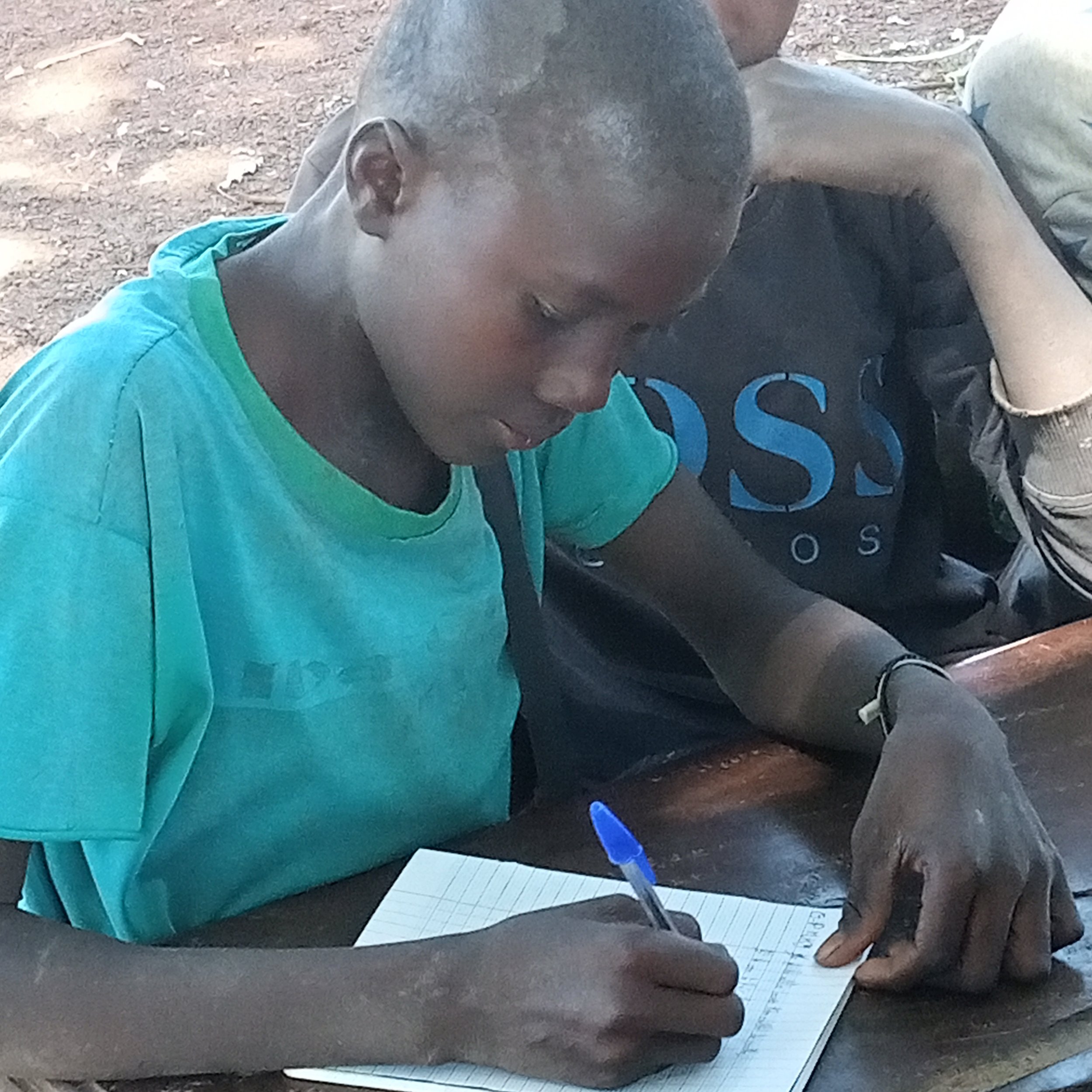
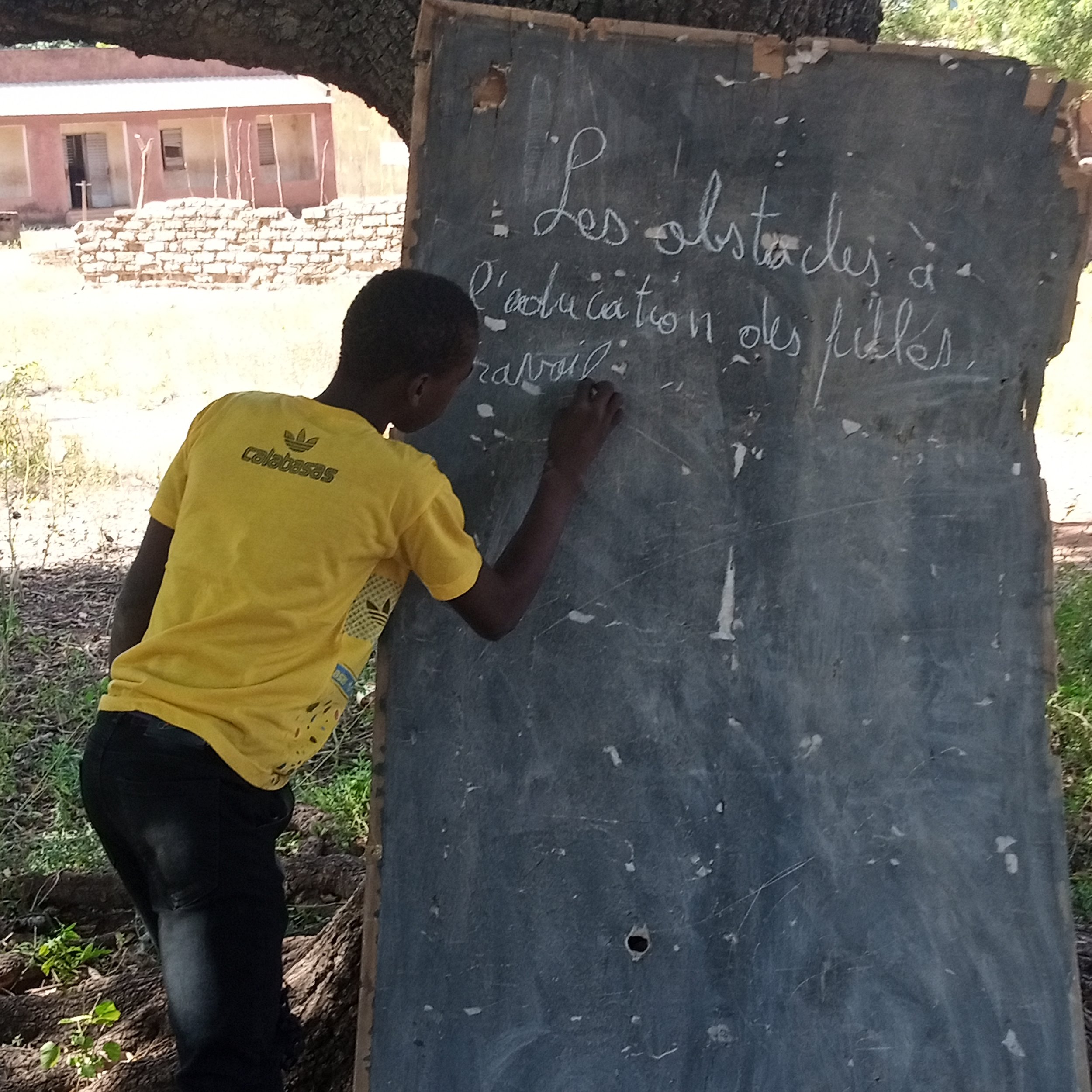
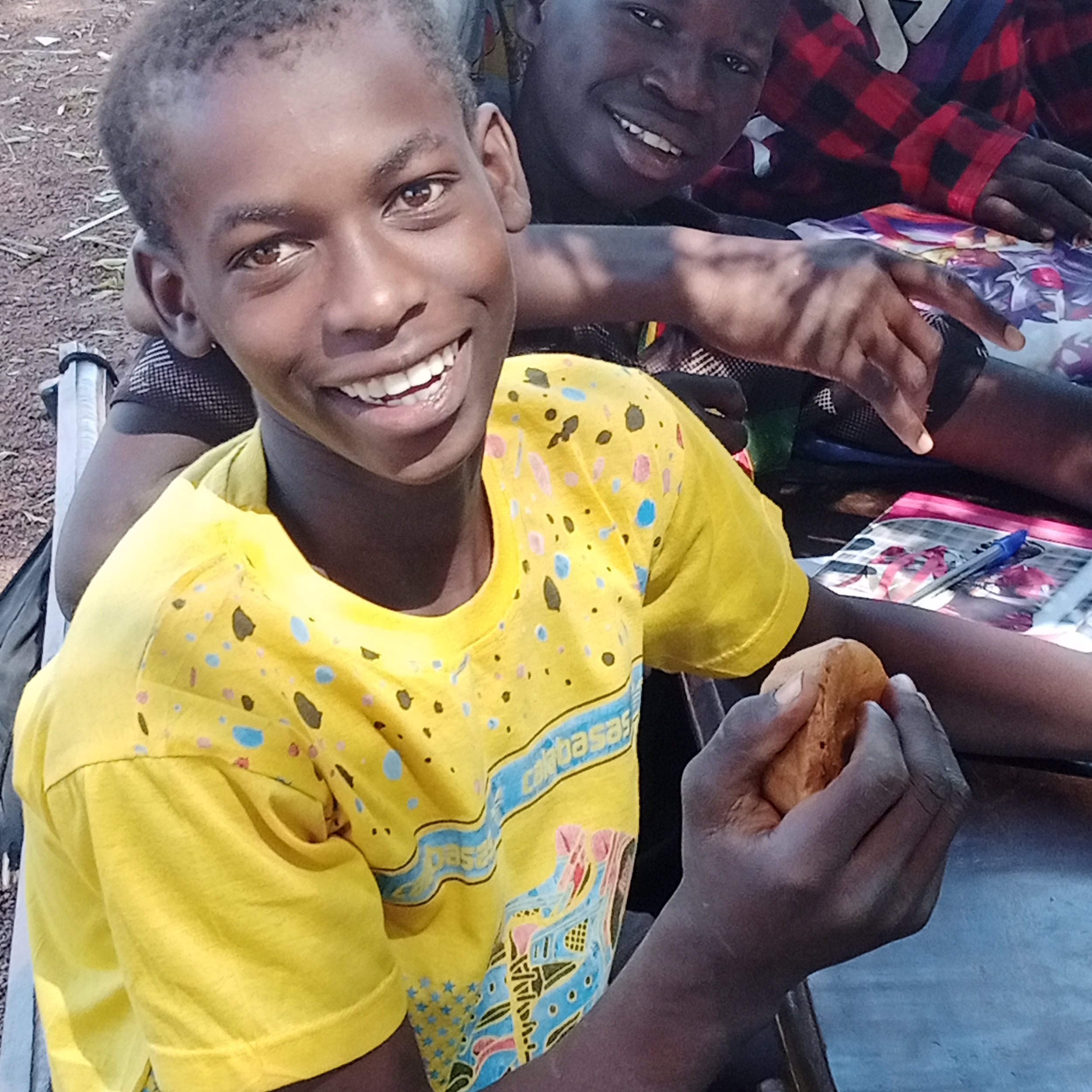
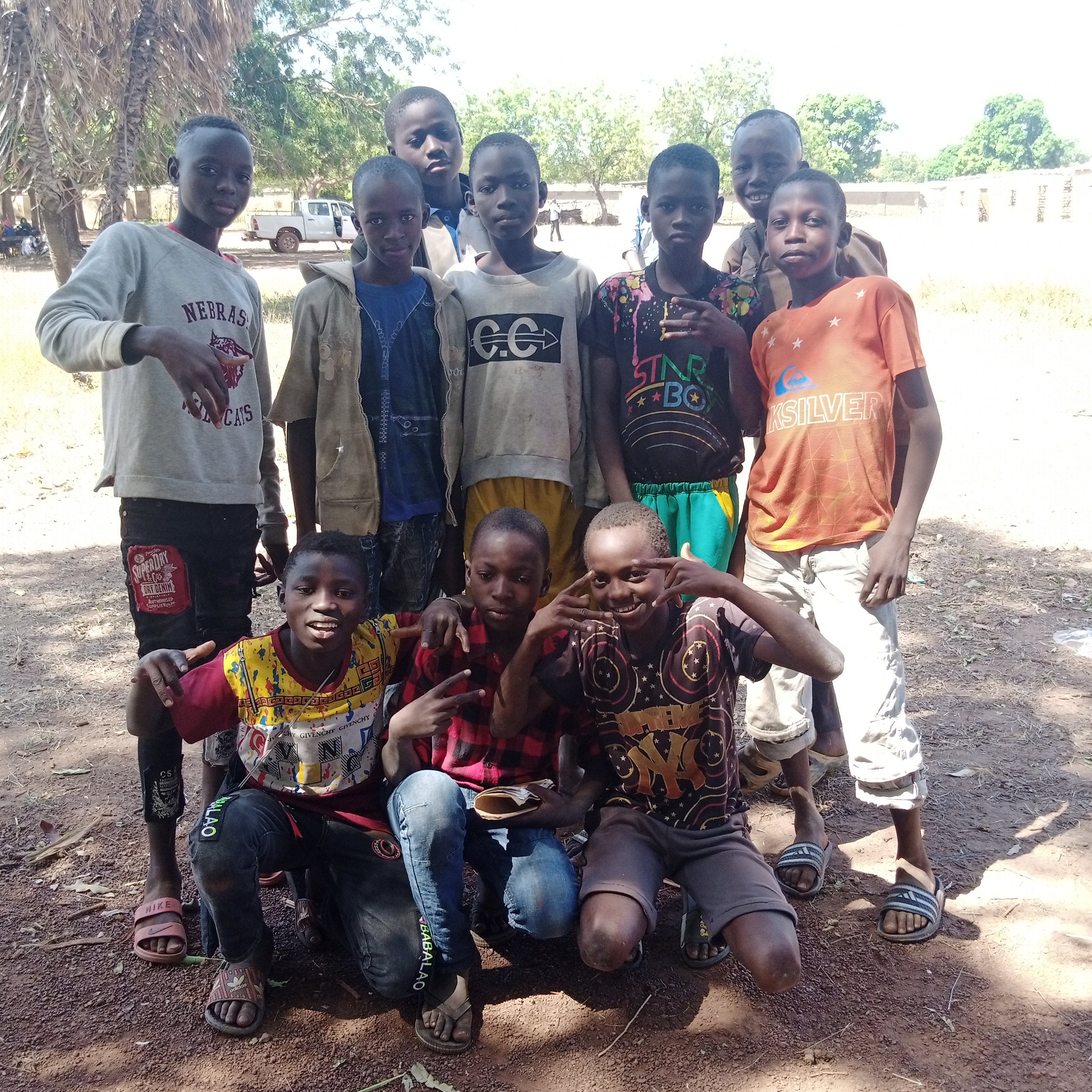
Sitan's Audacity Inspires Younger Girls
By Hindaty Traore, Girls Project Manager
Sitan is a very dynamic, motivated and determined young girl. She is 16 years old and is in 9th grade at Frances W. Burton Middle School. She comes from a very large farming family. She wants to do everything she can to lift her parents out of poverty. She wants to succeed but not alone.
This is why during our visit of the month to Tamala, Sitan offered us to advise her comrades finally that they be motivated from the beginning of the year to fight again this year so that they succeed all together. She thinks some girls still need a little encouragement to succeed especially those who have just arrived newly in Grade 7. Let us listen to her advice:
Hello sisters. Did you know that today's girls are the future of tomorrow's women, which is why it is essential that they are educated and learn to enforce their rights? I want us to develop this beautiful village of Tamala, which is for us and for our ancestors. No one will come to build this village for us. The best weapon to develop our village is education -- especially for girls.”
Girls' education is the precursor to lasting change. An educated girl can take charge of her life. Sensitized to the importance of education, she ensures that her children have a quality education and thus fights in turn against discrimination against girls, such as forced marriage, early pregnancy, child labor, and dropping out of school.
A girl who does not go to school will have a harder time making her voice heard. She will not be able to participate actively in the decision-making of the society in which she lives. The non-enrollment of girls locks them into poverty. Moreover, this situation is likely to continue in the next generation because an out-of-school girl will not understand the value of giving her children a quality education.
Education has brought me a lot. It taught me how to write my name, to know my family's phone numbers. Education is important because educating a girl is educating a family, a community, a village and an entire nation. Education allows you to know good manners in society, to have a lot of knowledge and you can have a job that you want to do but if you are not educated you will have nothing in life.
I learned a lot of things from the Girls’ Project like the menstrual cycle and period because I had not yet had my period.. I had advice to succeed, and I knew the existence of some languages in the world that I did not know. So I ask you my sisters to listen well to Hindaty, because she is there to help us succeed.
After my studies, I want to be a great seamstress to have money, sew clothes for me, my husband and Hindaty too. I hope you have understood my advice and my dream. I beg your pardon if I have offended you. Thank you."
After Sitan's intervention with the younger girls, we noticed the positive influence of the girls. This is why we will never stop thanking all the people who support the Girls' Project because thanks to them girls are able to express themselves in front of others, to study, to be bold, to have a specific goal in life.
Girls Explore the Lives of Career Women
As part of exposing our Girls Project girls to the diverse career opportunities an education girl can dream of, we recently interviewed some career women in their workplace and videoed the interviews. In the past, we brought these career women to the villages to meet the girls directly but because of the pandemic we took a questionnaire from the girls to the career women.
Celebrating our Girl Leaders!
By Hindaty Traore, Girls Project Manager
Two years ago, we began a new piece of our Girls Project work. After three intense years of work in our initial three Project villages, we trained local young women to return to their village to shepherd the villages’ Girls Group meetings and serve as role models for young girls in the village.
Each year, we carefully select two young women as Girl Leaders in each village. We provided extensive training and support for the Girl Leaders throughout their year of service, along with a stipend. The training of Girl Leaders has enabled them to become aware of their limitations, to mobilize their own resources, and to have confidence in each other.
All of the Girl Leaders had a story before the training. Some girls felt unable to go stand in front of a crowd and convince other girls to continue school, some were shaking, some were crying when they tried to stand in front of a class, and others were not confident in themselves. However, in early April this year’s Girl Leaders left their last training of the year with strong skills and positivity.
This training was an opportunity for the girls to train in teamwork, to raise awareness, to bring out hidden assets. The skills they have learned helped the Girl Leaders serve our Girls Groups, but have also helped them in their larger lives. For example, according to the Girl Leaders their parents treat them differently because they trust the young women more.
A job well done deserves an excellent reward. To salute the wonderful work they have done throughout the school year, Mali Rising awarded the Girl Leaders certificates of recognition. For this presentation of certificates, we met at the Bamako National Park. Half of the Girl Leaders had never been to the park before, so the trip itself was part of the reward! To make the event even more powerful, we invited last school year’s Girl Leaders to attend too – creating a powerful group of young women to celebrate together!
Looking back over the last two years, the 11 Girl Leaders (we have 6 Girl Leaders each year, but one women returned to repeat her service this year) we trained to return to their respective villages to support their younger peers in middle school carried out their tasks successfully. For 9 months the Girl Leaders went to the villages to meet with the girls and help them stay in school and succeed. Girl Leaders are a kind of human transmission of skills, courage, motivation, and role modeling to all girls in their village.
The 11 girls trained in the last two years have become good examples in the village. If fact, there are some girls who dream of being like the Girl Leaders now. The younger girls who are in the village want to take over the role of Girl Leaders someday so they can come home and educate their little sisters in turn!
The benefit of building the leadership capacities of these girls is threefold: it defines the heroines and role models for other young girls, it empowers and makes the Girl Leaders themselves stronger, and it challenges outdated community norms. We love our Girl Leaders!
Check out the photos on this page to see our Girl Leaders as they receive their certificates from me, Hindaty, and explore the National Park together.
One Girl Leader Steps Into Her Power
As part of our Girls Project, after three years of work in a village, we train local Girl Leaders to take over leadership of the Project. This allows us to offer leadership training and real-world experience to some amazing young women and to make the Project more sustainable by making the leadership more local. Girl Leaders serve for one year, and we offer them three multi-day trainings throughout their year of service. In this blog post, Hindaty tells the story of one Girl Leader as she attended her second training with us.
Girls Helping Girls: Peers Make the Difference!
Girl Leaders are young women from our partner villages who are trained by Mali Rising to take over the activities of the Girl Project in our three original Girls Project villages. These young women run the Girls Groups, and serve as role models to our girls because they are each continuing their own education in high school or vocational classes. This is a story of one new Girl Leaders and how her peers helped her overcome her fears…
A New Girl Leader Steps Up to Help Other Girls
Making the Girls Project Sustainable...Meet our Girl Leaders!
We love our Girls Project, which strives to recruit more girls into school and retain them there so they have the skills to build the lives they dream off. The Project has been very successful in its initial three pilot villages. We worked in those villages in pilot mode for three years, but are now working with those villages to have them take on the Project in a sustainable way (this will allow us take the Project to five new villages!). As part of that sustainability strategy, we are developing Girl Leaders for each of the pilot villages. These young women are now high school students, but they will be working in the villages to run the Girls Groups and other Project elements. We think they will also serve as great role models for sticking with school.


